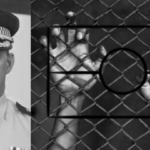How Can You Defend Someone You Know is Guilty?

How can you defend someone you know is guilty?
Anyone who has practised criminal law is sure to have heard this question at least once.
Some people think that a criminal defence lawyer’s job is to free murderers, sexual offenders and others charged with serious crimes. They are repulsed by this thought and have a negative perception of defence lawyers as a result.
The view that criminal defence lawyers actively mastermind the release of dangerous criminals into the community is completely inaccurate.
It must also be borne in mind that the overwhelming majority of defendants are not ‘dangerous criminals’ at all.
With a total of around 300 murders occurring Australia-wide each year, many of which do not result in prosecutions, it is evident that defending murder cases is not the only thing that defence lawyers do.
The vast majority of cases heard in the criminal courts involve lower level offences, such as driving offences, common assaults and possessing small amounts of drugs.
In addition, many defendants decide to plead guilty and are merely interested in getting the best possible outcome in their case. They admit responsibility and as a result may be able to get a sentence reduction or more favourable terms. They are often willing to undertake counselling, admit the offence to those close to them and take various steps to ensure that there is no re-occurrence.
Our justice system rewards those who plead guilty up front, because it saves time, money and valuable resources.
Merely allowing those who decide to be honest and ease the burden on our criminal justice system to in turn gain some advantage is surely not a violation of justice.
However, it is true that people who are guilty of serious crimes will, in rare instances, admit this to their lawyer but still want to plead ‘not guilty’.
In this situation, a lawyer cannot maintain their client’s innocence.
In NSW, the Solicitors Rules state that where a client has confessed their guilt but wants to maintain an innocent plea, a solicitor has two options:
1. A solicitor may decide to stop acting for the client, as long as there is enough time for the client to find someone else to represent them, or the client does not insist on the solicitor continuing to represent them; or
2. The solicitor can continue to act for their client, but under certain restrictions. A solicitor in this situation cannot:
- Suggest that someone else committed the offence
- Set up a case inconsistent with the confession
Instead they can:
- Argue that the evidence as a whole does not prove the client’s guilt
- Argue that for a reason of law the client is not guilty of the offence they are charged with
- Argue for any other reason (except for what is prohibited above) that the client should not be convicted
If the client insists on giving evidence denying guilt or requires the making of a statement claiming their innocence, a solicitor must stop acting for them.
But otherwise, if a solicitor continues to act for a client, they will commonly put the prosecution to proof.
NSW Barristers’ Rules have similar provisions for barristers who find themselves in this position.
Everyone has a right to legal representation, not just innocent people. This comes under the right to a fair trial.
And, although it does not cover the right to state-funded representation, every person charged with a crime has the right to obtain legal counsel.
This principle also benefits the wider community, too. A trial where one party is the resource-rich state and the other is an undefended litigant is a huge imbalance and court cases may often clarify important legal principles.
Legal representation is an essential part of our legal system – contrary to the law of England a few centuries ago where criminal defendants were not even allowed to have representation in court.
According to our law, all people are considered innocent until proven guilty. This means that even people who appear to be guilty are still entitled to be seen as innocent before trial.
If we started challenging the right of people charged with serious crimes the right to have a lawyer, we could be eroding this fundamental right of innocent until proven guilty.
Even seemingly clear-cut cases where the accused seems certainly guilty should not be taken at face value. Wrongful convictions still occur frequently in our courts – perhaps on a daily basis.
Even a person who confesses to a crime may be completely innocent – they may be acting under duress, panic, to protect someone else or they may try to please police so they can get out of the police station on bail. In fact, there have been dozens of studies over the decades that have reached the conclusion that false confessions are a common occurrence.
Criminal defence lawyers are an important check against the increasing powers of the State and police.
I can’t even begin to estimate the number of times clients have said to me:
‘I used to respect police until the way I was treated’, or
‘I used to say “lock’em up and throw away the key” until all of this’.
They are appalled by their treatment at the hands of police and by the inequities of the criminal justice system.
The fact is that a large proportion of people who are arrested and charged with criminal offences are innocent, and even those who are guilty can be guided towards programs that can decrease the likelihood of any re-occurrence.
Good criminal lawyers will be able to protect the interests of their clients while steering those who are guilty towards appropriate programs to address any underlying causes of offending.






